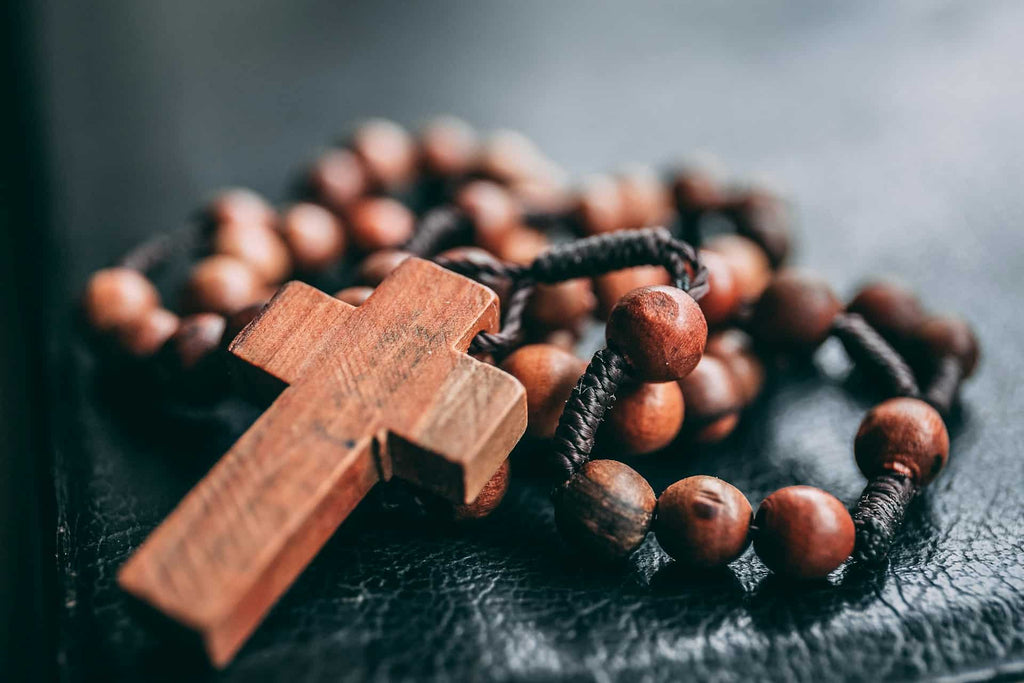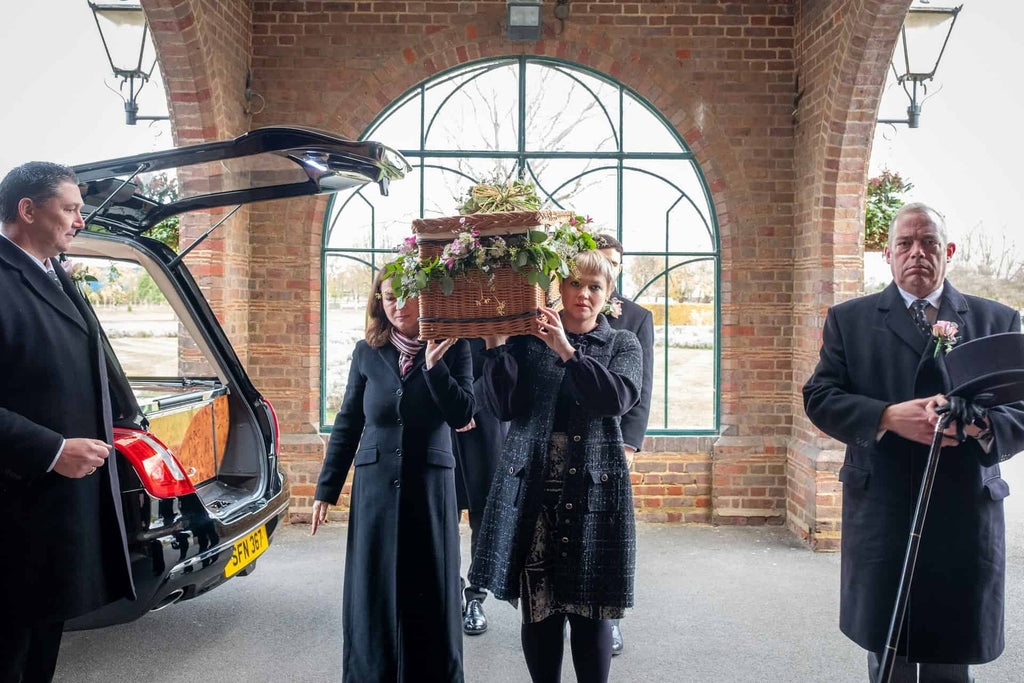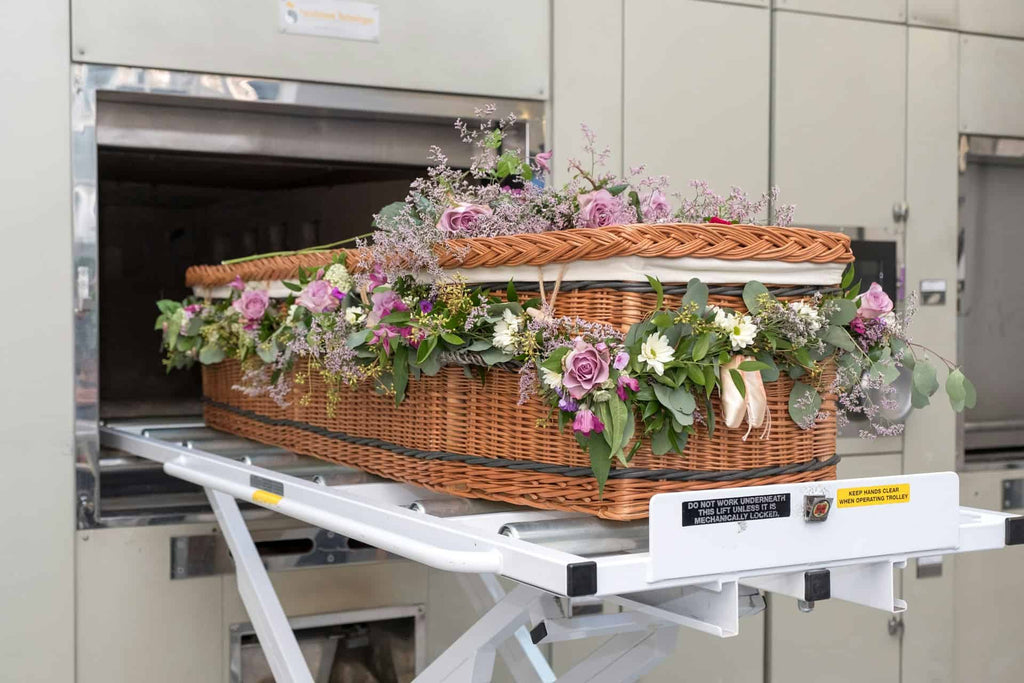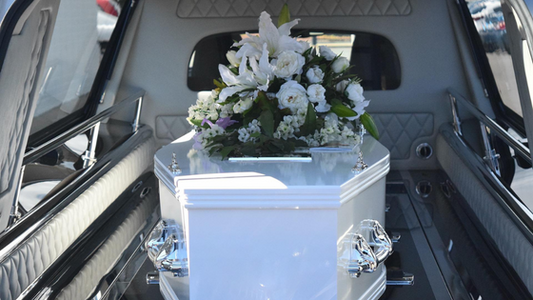Funeral Traditions
Funeral traditions vary greatly across cultures and religions, often reflecting a community's values, beliefs, and customs. If you are planning a funeral for a loved one, understanding these practices can be an essential part of the funeral preparation checklist and can help honor the deceased in a manner that is both respectful and meaningful.
Cultural and Religious Practices

Different religions have specific customs and rituals when it comes to funerals. For instance:
- As outlined in Empathy's guide to religious funerals, Catholic funerals often occur within three days of passing, including a mass but not a eulogy, which is instead delivered at the wake .
- Jewish and Muslim funerals are held as soon as possible, often foregoing viewings and embalming to adhere to religious customs. In Muslim ceremonies, the deceased is shrouded in cotton, tied with ropes, and placed directly in the ground.
- Hindu and Buddhist ceremonies may encourage attendees to wear white, symbolizing purity, while other religions typically suggest dark, somber attire.
Timing and Dress Codes
The timing of a funeral can be influenced by religious doctrine as well as practical considerations. Here are some general guidelines for timing based on religious practices:
- Most religions aim to have funerals within a week of death.
- Catholic funerals typically occur within three days.
- Jewish and Muslim funerals are usually held as quickly as possible to respect religious traditions.
When it comes to dress codes, they can range significantly depending on cultural and religious expectations:
- White is commonly worn at Hindu and Buddhist funerals to represent purity.
- Dark and somber attire is traditional in many Western religions, such as Christianity.
- Modest attire is expected at Muslim funerals, reflecting cultural norms.

Understanding these traditions can guide you in making appropriate arrangements that respect the wishes of the deceased and their family. You might consider consulting with religious leaders or experts to ensure that every aspect of the funeral honors the appropriate customs, from the service itself to the clothing choices of attendees.
For more detailed information on funeral customs and how to incorporate them into your planning, refer to our comprehensive funeral planning guide. And keep in mind that regardless of religious or cultural background, the most important aspect is to create a ceremony that feels right for you and your loved ones.
Initial Steps in Funeral Planning
The loss of a loved one is never easy, and it can be challenging to navigate the initial steps required in funeral planning. As part of your funeral preparation checklist, critical tasks need your immediate attention. These steps are essential in honoring the deceased and respecting their wishes.
Notify Family and Authorities
Your first responsibility is to inform family members and relevant authorities about the passing of your loved one. It is crucial to approach this step with sensitivity, as each individual may process the news differently. Here is a simple guide to help you through this process:
- Contact family members, friends and acquaintances. Here at Funeral Templates, we have a range of printable and digital funeral invitations, which can be easily edited and printed or sent digitally.
View Funeral Invitation Templates
- Inform the deceased's employer and any organizations where they were a member.
- If the deceased had a legal representative, contact them to determine if there is a prearranged funeral plan in place.
Secure Personal Documents

Securing the personal documents of the deceased is a vital step in the funeral planning process. This includes locating and organizing important paperwork that will be required for various legal and financial proceedings. Here is a checklist of documents you should gather:
- Death certificate (obtain multiple certified copies)
- Will or trust documents
- Life insurance policies
- Bank and investment account information
- Real estate deeds and mortgage documents
- Vehicle titles and registrations
- Last tax return filed
- Digital asset information (online accounts, social media profiles, etc.)
For more information about the forms you need before making funeral arrangements, see this guide from Funeralocity.
Having these documents on hand will facilitate the next steps in the funeral planning process, such as selecting funeral home services, understanding funeral service costs, and considering funeral pre-planning options for future arrangements.
By attending to these initial steps promptly, you can create a foundation for the rest of the funeral preparations. Although this time may be filled with grief, taking action to honor your loved one's memory can also bring a sense of comfort and closure.
Choosing Funeral Services

Selecting the right funeral services is an essential part of your funeral preparation checklist. It involves making decisions that honor the wishes of the deceased and provide comfort to the bereaved. Below are steps to guide you through this process.
Selecting a Funeral Home
The first step in arranging funeral services is choosing a funeral home that aligns with your family's needs and preferences. Research different funeral homes, compare their prices and services, and consider reading reviews to make an informed decision. When selecting a funeral home, consider the following:
- Location and accessibility for attendees
- Types of services offered
- Reputation and quality of care
- Cost of services and transparency in pricing
- Cultural and religious accommodations
It's also wise to contact the deceased's legal representative to determine if there is a prearranged funeral plan in place, which can provide specific directions for the arrangements.
Options for Body Disposition
Deciding on the method of body disposition is a personal choice influenced by cultural, religious, or personal beliefs. Common options include:
- Traditional burial
- Cremation
- Natural or green burial
- Donating the body to science

Each option has different considerations, such as the cost of a casket or urn, cemetery fees, and the environmental impact. When considering body disposition, refer to religious traditions if applicable. For example, Islamic and Jewish traditions typically do not include embalming or viewings and opt for prompt burial, while other religions may have more flexibility in the timing and practices involved.
Planning the Funeral Service
Planning the funeral service involves multiple components that come together to create a meaningful tribute. Consider the following elements:
- Type of service (traditional funeral, memorial service, wake, etc.)
- Location (funeral home, place of worship, outdoors, etc.)
- Officiant (clergy, celebrant, family member, etc.)
- Readings, eulogies, and music selections
- Attendee dress codes, in line with cultural or religious customs
Bear in mind that some religions have specific practices; for instance, Catholic funerals often include a mass and Hindu and Buddhist funerals typically see attendees wearing white.
Creating a budget for the funeral is crucial, as costs can quickly accumulate. Typical expenses to consider include:
- Funeral home fees
- Cost of casket or urn
- Transportation costs
- Clergy or celebrant fees
- Floral arrangements
- Obituary fees
Consulting funeral service costs and discussing budget constraints with your family can help ensure everyone is on the same page.
In summary, selecting funeral services is a deeply personal process. Remember to take the time you need, consult with family members, and consider the wishes of the deceased. For more detailed guidance, explore our comprehensive funeral planning guide.
Financial Aspects of Funerals
Navigating the financial components of funeral arrangements can be a daunting task during a time of loss. To help you manage these aspects, this section provides a concise guide on understanding funeral costs, the benefits of pre-planning and pre-paying, and the financial tools and resources available to you.

Understanding Funeral Costs
The cost of a funeral service can be a significant expense. The average cost of a funeral in the United States is between $8,000 and $10,000, but it's important to note that this figure can vary widely depending on location and services chosen. The following table breaks down the average costs you might expect:
| Service | Average Cost (USD) |
| Basic Service Fee | $2,100 |
| Casket | $2,500 |
| Embalming | $750 |
| Facilities and staff for ceremony | $950 |
| Transportation | $350 |
| Burial/Cremation | $2000 |
Remember that additional expenses may include cemetery fees, headstones, flowers, obituary notices, and catering for a gathering after the service. Getting a detailed price list from the funeral home services you are considering is crucial to ensure you understand all potential costs.
Pre-planning and Pre-paying Benefits
Pre-planning and pre-paying for funeral services can provide peace of mind for both you and your loved ones. It allows you to make decisions at your own pace, reflect on personal preferences, and save family members from the pressure of making choices during a difficult time. Additionally, locking in current prices with pre-payment can offer financial benefits by hedging against inflation and price changes in the funeral industry.
Benefits of pre-planning and pre-paying include:
- Ensuring that your wishes are respected
- Alleviating the decision-making burden from your family
- Controlling costs by securing today's prices
- Avoiding overspending from emotional distress
Financial Tools and Resources
Several financial tools and resources are available to help manage the costs associated with a funeral. These include:
- Savings and Money Market Accounts: Saving for future expenses, including a funeral, can be done through traditional savings or money market accounts. Money market accounts often combine the benefits of both savings and checking accounts.
- Home Equity: If you are a homeowner, you may have built up equity in your property. Home equity can be used to borrow funds for significant expenses, such as covering funeral costs.
- Life Insurance: A life insurance policy can also provide funds to cover funeral expenses. Be sure to understand the policy details and how beneficiaries can access the money when needed.

- Funeral Insurance and Trusts: Specific insurance policies and trust accounts are available to pre-fund funerals. These financial products can be tailored to cover anticipated funeral costs and are paid out upon death.
It's advisable to consult with financial advisors or estate planners to explore the best options for your circumstances. They can provide guidance on the most suitable financial strategies to prepare for funeral costs. For further information on managing funeral expenses, you might find our funeral planning guide helpful.
Funeral Preparation Checklist
When dealing with the loss of a loved one, having a structured approach can help manage the numerous tasks associated with planning a funeral. This checklist is designed to guide you through the immediate tasks, service arrangements, and the preparation of obituaries and notices.
Immediate Tasks
In the initial hours following a loved one's passing, some critical steps need to be taken:
- Contact the Deceased’s Legal Representative: Determine if there is a prearranged funeral plan. If such a plan exists, it will guide you on how to proceed with the funeral arrangements.
- Choose a Funeral Home: If no prearrangement is in place, select a funeral home and meet with a funeral director to discuss planning and services.
- Create a Funeral Budget: Discuss and establish a budget with family members to ensure everyone understands the financial aspect of the arrangements.

Service Arrangements
After handling the immediate tasks, the next step is to plan the specifics of the funeral service:
- Disposition Options: Decide whether burial or cremation is appropriate, considering any specific preparations such as embalming or a unique type of cremation
- Funeral Service Location: Choose a location that holds significance for the deceased or the family, such as a church or other special place
- Service Details: Plan the service's details, including readings, eulogies, music, and any cultural or religious practices.
Obituary and Notices
The last part of the checklist involves announcing the passing and celebrating the life of your loved one:
- Prepare an Obituary: Gather biographical information and craft an obituary to announce the passing. This can be published in newspapers or online.
- Death Notices: Inform friends, family, and community members about the funeral service details with a funeral invitation.
- Online Tributes: Consider creating an online memorial or tribute where people can share memories and condolences.
To ensure a smooth planning process, gathering important documents and considering pre-planning options that can provide peace of mind is essential. For more detailed guidance, visit our funeral planning guide. Remember, as you go through this difficult time, to take care of yourself and reach out for support when needed.
Legal Considerations and Rights
When planning a funeral, it's important to be aware of the legal aspects that can affect your decisions. Understanding your rights will empower you to make informed choices during this difficult time.
Funeral Laws and Consumer Rights
Both state and federal regulations protect your rights in funeral planning. These laws ensure that you receive transparent information about funeral-related services and protect you from unfair practices.
Under state laws you may have the right to outline your funeral preferences in a will or a designated document, and to appoint someone to handle the arrangements after your passing.
The Federal Funeral Rule, enforced by the Federal Trade Commission, gives you the right to:
- Obtain price information on the phone or in writing.
- Receive a detailed price list when visiting a funeral home.
- Choose the funeral goods and services you want (with some exceptions).
- Receive an itemized statement of goods and services you have selected.
- Use an "alternative container" for cremation.
- Provide the funeral home with a casket or urn purchased elsewhere.
- Decline embalming for direct cremation or immediate burial.
Trust Accounts and Refunds
When you prepay for funeral services in many states, the law requires that these funds be held in a trust account. This ensures that your money is secure and will be available when needed.

In Minnesota, for example, all prepaid funds must be placed in a trust and you must be informed of the financial institution and account number. The funeral director or cemetery operator is also required to provide annual reports on the status of your funds. Additionally, you can arrange to receive a full refund of all prepaid funds at any time before services are rendered.
These "permanent care and improvement" trust accounts are used to ensure the maintenance and upkeep of cemetery grounds and buildings. Understanding these financial tools and resources can help you better manage the financial aspects of funerals.
When considering funeral pre-planning, it's crucial to understand the legalities surrounding trust accounts and refunds. This knowledge will give you peace of mind and help ensure that your wishes are respected and your investments are safeguarded.
Alternative Funeral Options
Exploring alternative funeral options can provide a meaningful and personalized way to honor your loved one, while also aligning with personal, environmental, or philanthropic values. Here are some options to consider when completing your funeral preparation checklist.
Donating to Science

Donating the body of your loved one to science is a generous way to contribute to advancing medical knowledge and education. Medical institutions use human cadavers to study diseases, develop new treatments, and train future healthcare professionals. This choice not only aids in scientific progress but can also be a cost-effective alternative to traditional funerals. Before making this decision, it's important to coordinate with a medical institution and understand the process involved.
Eco-friendly Burial Choices
For those who are environmentally conscious, there are several eco-friendly burial options available:
- Mushroom Burial Suits: These suits are crafted from biodegradable mushrooms and other microorganisms that aid in the decomposition of the body, neutralizing toxins in the process. This option not only reduces the environmental footprint but also nourishes the earth, promoting new plant growth.
- Biodegradable Tree Urns: By using cremated remains, soil, and a seedling or live tree, these urns create a living memorial. As the tree matures, it symbolizes the continuation of life and serves as a natural tribute to the deceased.
- Burial Pods: These pods encapsulate the body or cremated ashes in a biodegradable container and are buried beneath a young tree. As the tree grows, it draws nutrients from the pod, creating a living memorial forest that can bring comfort to loved ones.

Cremation and Memorial Innovations
Cremation offers several innovative alternatives:
- Alkaline Hydrolysis: Also known as resomation or aqua cremation, this process uses water, heat, and alkaline chemicals to break down the body into its chemical components. It is an environmentally friendly option that uses significantly less fuel and energy than traditional cremation.
- Memorial Diamonds: Transforming cremated ashes into diamonds is a unique way to create a lasting legacy. These diamonds can be worn as jewelry, allowing you to keep your loved one close.
- Space Burials: Sending a portion of cremated remains into space is a way to memorialize those who had a passion for the stars and the great beyond. This service provides a cosmic send-off, literally launching a part of your loved one into orbit.

When considering alternative funeral options, discussing with family members and seeking professional guidance is important. You can find assistance with funeral pre-planning and funeral home services, as well as information on funeral service costs, to ensure that you make informed decisions that honor the wishes of your loved one and bring peace to those left behind.











